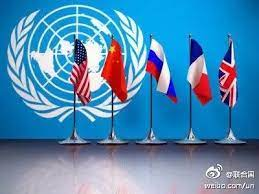What is veto power
The power of the President to refuse to approve a bill or resolution and so forestall its enactment into law is that the veto. The president has 10 days (excluding Sundays) to sign a bill gone Congress.
What is meant by veto power?
The
power of the President to refuse to approve a bill or resolution and so
forestall its enactment into law is that the veto. The president has 10 days
(excluding Sundays) to sign a bill gone Congress.
What veto means?
to refuse to admit or approve :
compel conjointly : to refuse assent to (a legislative bill) thus on forestall
enactment or cause reconsideration. different Words from veto Synonyms &
Antonyms Example Sentences Learn additional concerning veto.
Why is the veto power important?
Veto power is a kind of protection wherever those that
betray a permanent member have the likelihood of their efforts facing defeat by
their hand. ... As a permanent member, one mustn't perpetually wave their right
to veto as a threat to any or all those that oppose them, for everybody is
absolutely awake to their power.
The Framers of the Constitution gave the President the
ability to veto acts of Congress to stop the branch from turning into too
powerful. ... The veto permits the President to “check” the assembly by
reviewing acts gone Congress and interference measures he finds
unconstitutional, unjust, or unwise.
What is qualified veto?
There area unit 2 varieties of vetoes: the “regular veto”
and also the “pocket veto.” The regular veto may be a qualified negative veto.
... The veto becomes effective once the President fails to sign a bill when
Congress has adjourned and is unable to override the veto.
What can a president not do?
A PRESIDENT CANNOT . . .
make laws.
declare war.
decide however federal cash are spent.
interpret laws.
choose cupboard members or Supreme Court Justices while not
Senate approval.
Does the President control the military?
Under the Constitution, the President as Commander in Chief
of the military and Navy is that the supreme military commander charged with
the responsibility of protective and defensive the us. The phrase “Army and
Navy” is employed within the Constitution as a way of describing all the
militia of the us.
Who is in charge of the US armed forces?
The president of the us
The president of the us is that the commander-in-chief of
the militia and forms military policy with the Department of Defense (DoD) and
Department of Homeland Security (DHS), each federal government departments,
acting because the principal organs by that military policy is distributed.
Who goes to war first Army or Marines?
The Marines area unit usually the primary on the bottom in
combat things, leading the charge once conflict arises. They conjointly serve
on Navy ships, defend military service bases and guard U.S. embassies.
When did China get veto power?
As of Gregorian calendar month 2012, the People's Republic
of China had used its SC veto eight times, fewer than different countries with
the veto: in 1972 to veto the admission of Asian country (which it recognized
as a province of Pakistan), in 1973 (in conjunction with the Soviet Union) to
veto a resolution on the ceasefire in ...




